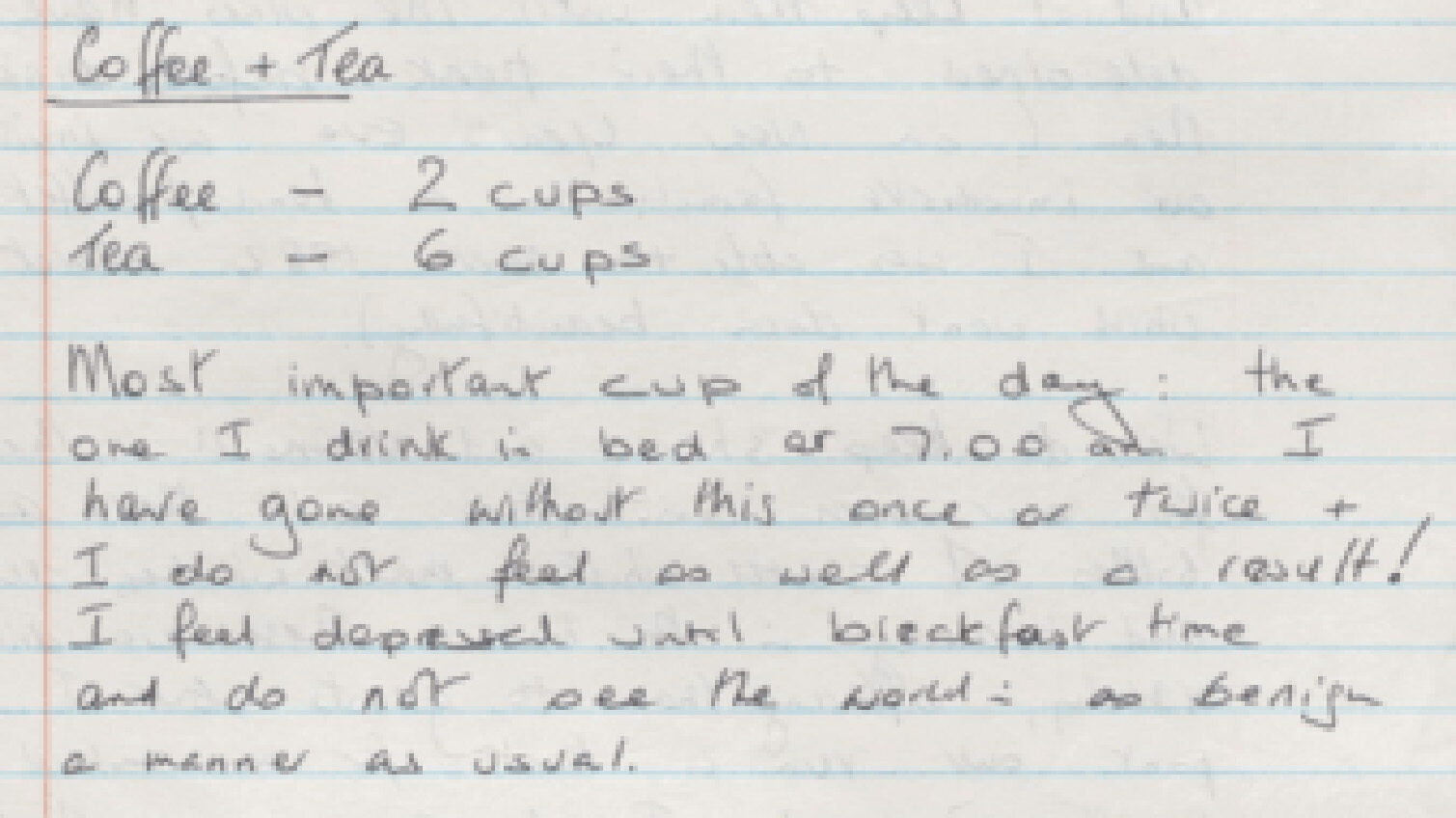Fancy a cuppa? An insight into tea drinking habits from the Mass Observation Project
Is there anything a good cup of tea can’t solve? Popping the kettle on will always bring a sense of comfort, but what is your favourite time of day to drink your tea? Do you dunk a biscuit or two? Is it the early morning cuppa, or the mid-afternoon pick-me-up that you look forward to most?
In Britain, we drink 165 million cups of tea a day, which is enough to fill about 20 Olympic swimming pools! It is therefore no wonder we have such strong views on how we drink our tea. During the lockdown, the research firm Kantar has reported that we have spent an additional £24 million on tea, and if I’m honest, I’m not surprised!
That said, a good cup of tea has always been important, and in the 1989 Autumn/Winter directive of the Mass Observation Project, we can see exactly how people enjoyed their cuppas just over 30 years ago. They were asked how many cups they drink a day, and which cup they could not do without.
Respondent number R1452
Respondent R1452 is certainly starting their day in the right way, with a cup of tea in bed. There is something very relaxing about this idea. Interestingly, R1452 drinks lots of tea when faced with work deadlines, which is very common and personally I often find myself making cup after cup without realising. It is a habit which R1452 and other respondents seem to be unable to go without.

Image © Mass Observation Archive Trustees. Further reproduction is prohibited without permission.
Respondent number P414
Respondent number P414 has a whopping 6 cups a day, an impressive feat. Without the early morning cup they ‘do not see the world in as benign a manner as usual’! What I find charming about these responses is that people genuinely enjoy their morning or afternoon cup of tea every single day and that it becomes part of a routine.
That very much resonates with me, not only for that little caffeine boost but also for the comforting feeling of holding a warm mug and sipping away whilst either waking up slowly and starting my day or getting through a load of work in the afternoon. I haven’t quite made it to 6 cups a day during the lockdown, but I am getting close.
I will leave you with some more responses below, and I’m sure their charm will make you smile. With that, it’s time to pop the kettle on!

Image © Mass Observation Archive Trustees. Further reproduction is prohibited without permission.
Respondent number M353

Image © Mass Observation Archive Trustees. Further reproduction is prohibited without permission.
Respondent number P1009

Image © Mass Observation Archive Trustees. Further reproduction is prohibited without permission.
Respondent number P1452

Image © Mass Observation Archive Trustees. Further reproduction is prohibited without permission.
For more information about Mass Observation project, 1981-2009, including free trial access and price enquiries, please email us at info@amdigital.co.uk.
Recent posts

The blog highlights American Committee on Africa, module II's rich documentation of anti-apartheid activism, focusing on the National Peace Accord, global solidarity, and student-led divestment campaigns. It explores the pivotal role of universities, protests, and public education in pressuring institutions to divest from apartheid, shaping global attitudes toward social justice and reform.

This blog examines how primary sources can be used to trace the impact of young voices on society, particularly during pivotal voting reforms in the UK and the US. Explore materials that reveal insights into youth activism, intergenerational gaps, and societal perceptions, highlighting their interdisciplinary value for studying youth culture, activism, and girlhood across history.
